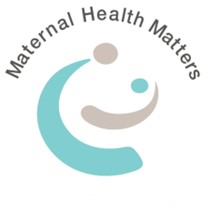The right to a positive childbirth experience
10 December 2023 marks the 75th anniversary of one of the world’s most ground breaking global pledges: the Universal Declaration of Human Rights (UDHR). This landmark document enshrines the inalienable rights that everyone is entitled to as a human being – regardless of race, colour, religion, sex, language, political or other opinion, national or social origin, property, birth or other status. The 2023 Theme is Freedom, Equality and Justice for All.

Childbearing Is a Human Rights Issue
When a woman becomes pregnant, she and her baby have unalienable rights.
Every mother and baby has the right to be treated with compassion and respect during the pregnancy, birthing and in the time after birth. Irrespective of the socioeconomic setting all pregnant women have the right to a woman-centred care that optimizes the quality of maternity care, through a holistic, human rights-based approach that provides a positive birth experience.
It is about the freedom to decide, to be respected as a unique individual, with personal autonomy. Views that are not usually considered in relation to childbearing.
The right to a positive birth extends beyond the idea of choice: social protection and support are needed to empower women and families with the knowledge and resources needed to realise their right to a positive birth.
We need to remember that childbearing is a most crucial and powerful rite of passage in a woman’s life, with deep personal and cultural significance. This can be perceived by the mother as either an empowering experience or a traumatic ordeal and those feelings will last her entire life. Disrespectful care has a lasting and negative impact for the women, damaging her confidence and her sense of worth. It can undermine her ability to mother and may also affect her physical and mental health.
Most births today lead to some varying degree of preventable trauma for the mother and baby. Preventable because much of it is iatrogenic, caused by the health professional and hospital – it is about custom and practice, policy and procedure, about managing risk. The woman is invisible. The United Nations states – Routine unnecessary intervention in birth is an ethical issue. Routine interventions violate a woman’s autonomy, does harm and fails to achieve optimal outcomes for women and their newborns.
As a consequence mothers and babies are missing the healthiest possible beginning, both physically and emotionally. Their human rights are being violated.
The right not to suffer from trauma in pregnancy and birth is a basic human right. That does not mean that trauma will not exist, but the concern of all of us should be to do everything we can to reduce it. We need practices that promote optimal birth. We all have a responsibility to provide respectful maternity care. There is ever increasing evidence that when childbearing women are treated with respect, then birth trauma is minimised. Instead, the mother has a positive experience.
Maternity care must be part of a respectful relationship to create an outcome that empowers the woman and ensures a safe birth of her baby.
#mattersmaternal
